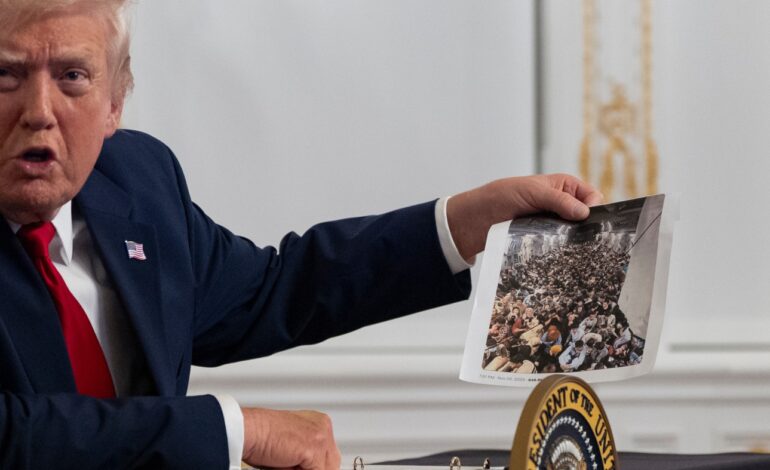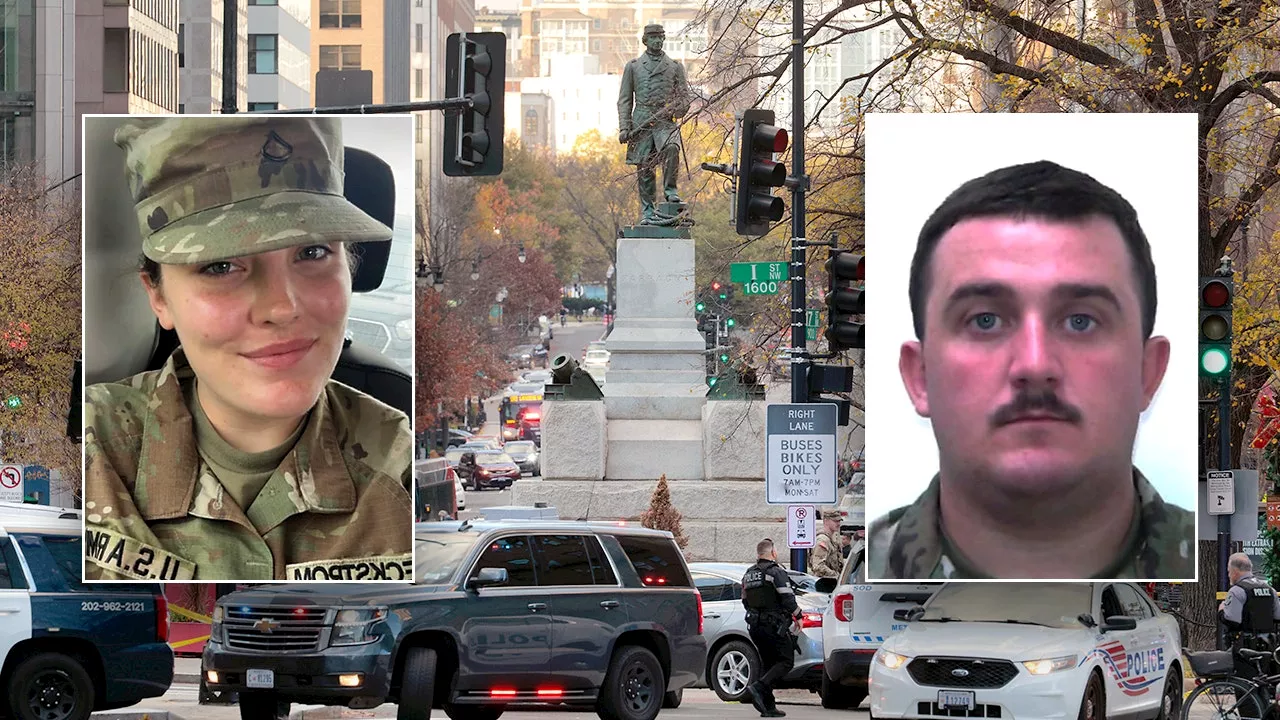Trump Announces ‘Permanent Pause’ on Migration from Poor Nations

UPDATE: President Donald Trump has just announced a controversial plan to “permanently pause migration” from poorer nations, escalating his anti-immigrant rhetoric in a late-night social media post on Thanksgiving. This announcement comes in the wake of a tragic shooting incident involving two National Guard members in Washington, D.C., underscoring urgent concerns about immigration policies and national security.
The president’s social media tirade followed the shooting of the Guard members, one of whom tragically died. Authorities report that a 29-year-old Afghan national, previously resettled in the U.S. after aiding American troops, is facing charges in connection with the incident. Trump’s comments add fuel to the ongoing debate over immigration, particularly in light of the recent violence.
In his post on Truth Social, Trump proclaimed, “Only REVERSE MIGRATION can fully cure this situation,” as he condemned immigrants from various nations. He characterized those entering the U.S. as largely dependent on welfare or linked to crime, despite research indicating that immigrants are 60% less likely to be incarcerated than U.S.-born citizens.
Trump’s harsh statements could have significant implications for U.S. immigration policy. His administration has already taken steps to restrict immigration, including a ban on travel from 12 countries earlier this year. The latest comments come as Joseph Edlow, director of U.S. Citizenship and Immigration Services, announced heightened scrutiny for individuals from 19 “high-risk” countries.
Critics argue that Trump’s narrative is misleading. The perception that immigration correlates with increased crime is increasingly challenged by academic studies, which show no link between high immigrant populations and crime rates in the U.S. Despite these findings, Trump appears undeterred, focusing instead on his narrative that foreign nationals threaten American communities.
The president’s remarks about the Somali community in Minnesota have drawn backlash, particularly his use of derogatory language directed at state officials. As tensions rise, the implications of Trump’s statements could lead to intensified immigration enforcement and a potential increase in deportations, impacting communities across the nation.
The economic ramifications of Trump’s proposed policies are concerning. With nearly 31 million jobs in the U.S. filled by foreign-born workers, any reduction in immigration could disrupt key sectors of the economy, including construction and service industries.
As Trump’s rhetoric escalates, the nation watches closely. What happens next could reshape the landscape of American immigration policy and community relations. Stay tuned for further updates as this situation develops.






